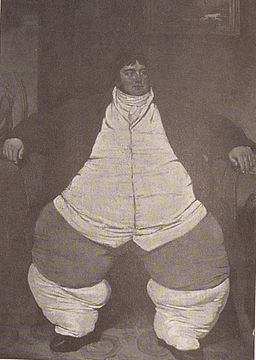
Below is a list of various nutrients that affect a person's ability to gain or lose weight.
- Zinc - reduces leptin, a beneficial hormone that regulates appetite, which is reversed by zinc repletion.
- Asparagine - this amino acid increases insulin sensitivity which helps the body store energy in muscle instead of storing it as body fat.
- Biotin - boosts metabolism by improving glycemic control (stabilizes blood sugar) and lowering insulin, a hormone that promotes fat formation.
- Carnitine - carries fatty acids into cell so they can be burned for fuel; Helps reduce visceral adiposity (belly fat).
- Calcium - inhibits the formation of fat cells; Also helps oxidize (burn) fat cells.
- Lipoic Acid - improves glucose uptake into cells, which helps a person burn carbohydrates more efficiently.
- Chromium - makes the body more sensitive to insulin, helping to reduce body fat and increase lean muscle.
- Vitamin B5 - taking B5 lowers body weight by activating lipoprotein lipase, an enzyme that burns fat cells. One study linked B5 supplementation to less hunger when dieting.
- Magnesium - low magnesium in cells impairs a person’s ability to use glucose for fuel, instead storing it as fat; Correcting a magnesium deficiency stimulates metabolism by increasing insulin sensitivity. Magnesium may also inhibit fat absorption.
- Glutamine - reduces fat mass by improving glucose uptake into muscle.
- Cysteine - supplementation with this antioxidant reduced body fat in obese patients.
- Inositol - supplementation may increase adiponectin levels.
- Vitamin B3 (niacin) - treatment with B3 increases adiponectin, a weight-loss hormone secreted by fat cells; Niacin-bound chromium supplements helped reduced body weight in clinical trials.
- Vitamin A - enhances expression of genes that reduce a person’s tendency to store food as fat; Reduces the size of fat cells.
- Vitamin E - inhibits pre-fat cells from changing into mature fat cells, thus reducing body fat.
- Vitamin D - deficiency strongly linked to poor metabolism of carbohydrates; Genes that are regulated by vitamin D may alter the way fat cells form in some people.
- Vitamin K - poor vitamin K status linked to excess fat tissue; Vitamin K helps metabolize sugars.
Read More
Topics:
zinc,
Carnitine,
Magnesium,
Weight Loss,
Hypothyroidism,
biotin,
Vitamin D,
B Vitamins,
Calcium,
Vitamin E,
Chromium,
Glutamine,
Asparagine,
Vitamin A,
Vitamin K,
Cysteine,
Weight Gain,
Lipoic Acid,
Inositol
ADHD and AUTISM ON THE RISE
Recent years has seen an unprecedented rise in autism and attention deficithyperactivity disorder (ADHD).
Although researchers speculate on the reason for this rise, many factors likely contribute, including more accurate diagnosis. However, overwhelming evidence suggests that nutritional deficiencies may be a contributing factor.
Read More
Topics:
zinc,
Carnitine,
Magnesium,
ADHD,
Autism,
vitamin,
Omega 3 Fatty Acid,
Oxidative Stress,
Omega 3s,
Nutritional Deficiency,
Omega 6,
Vitamin B6,
Neurotransmitters





